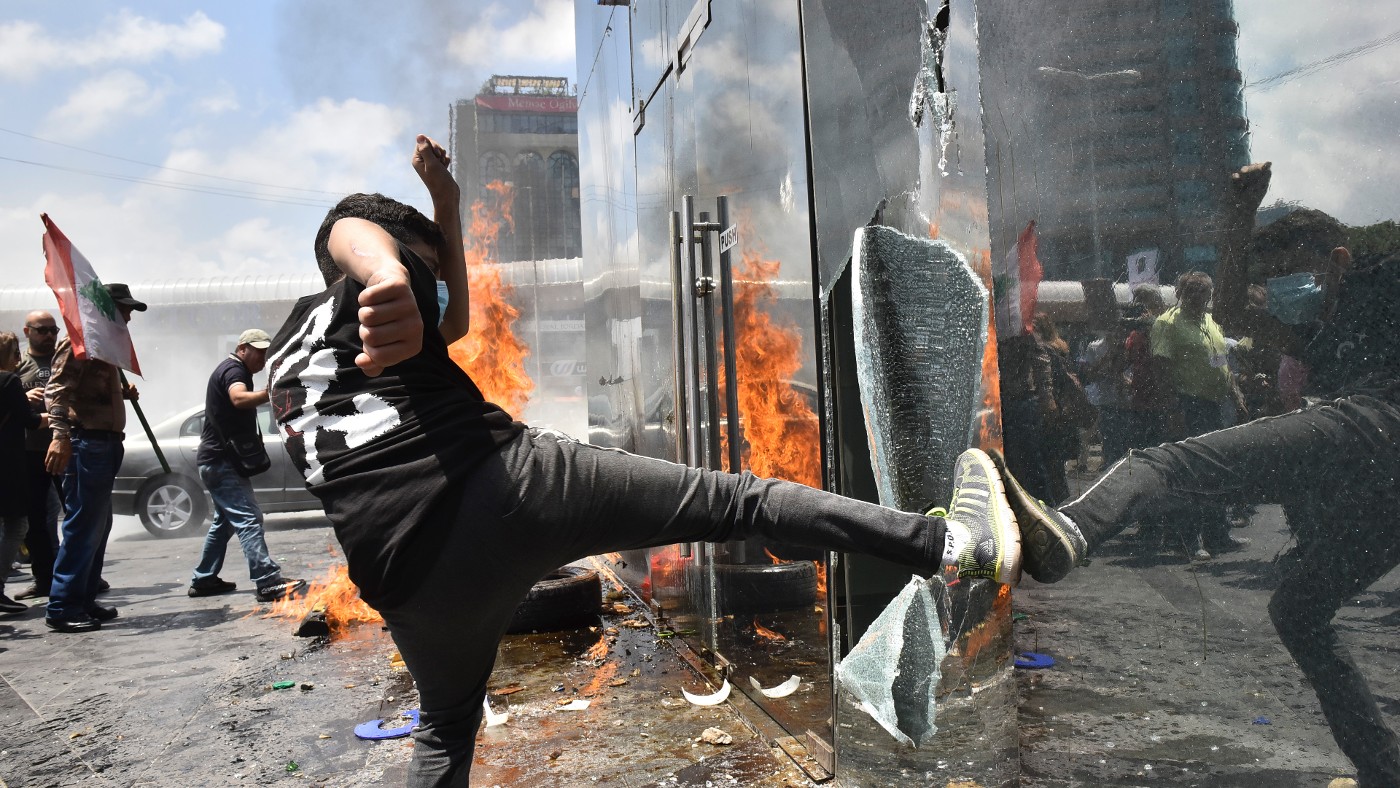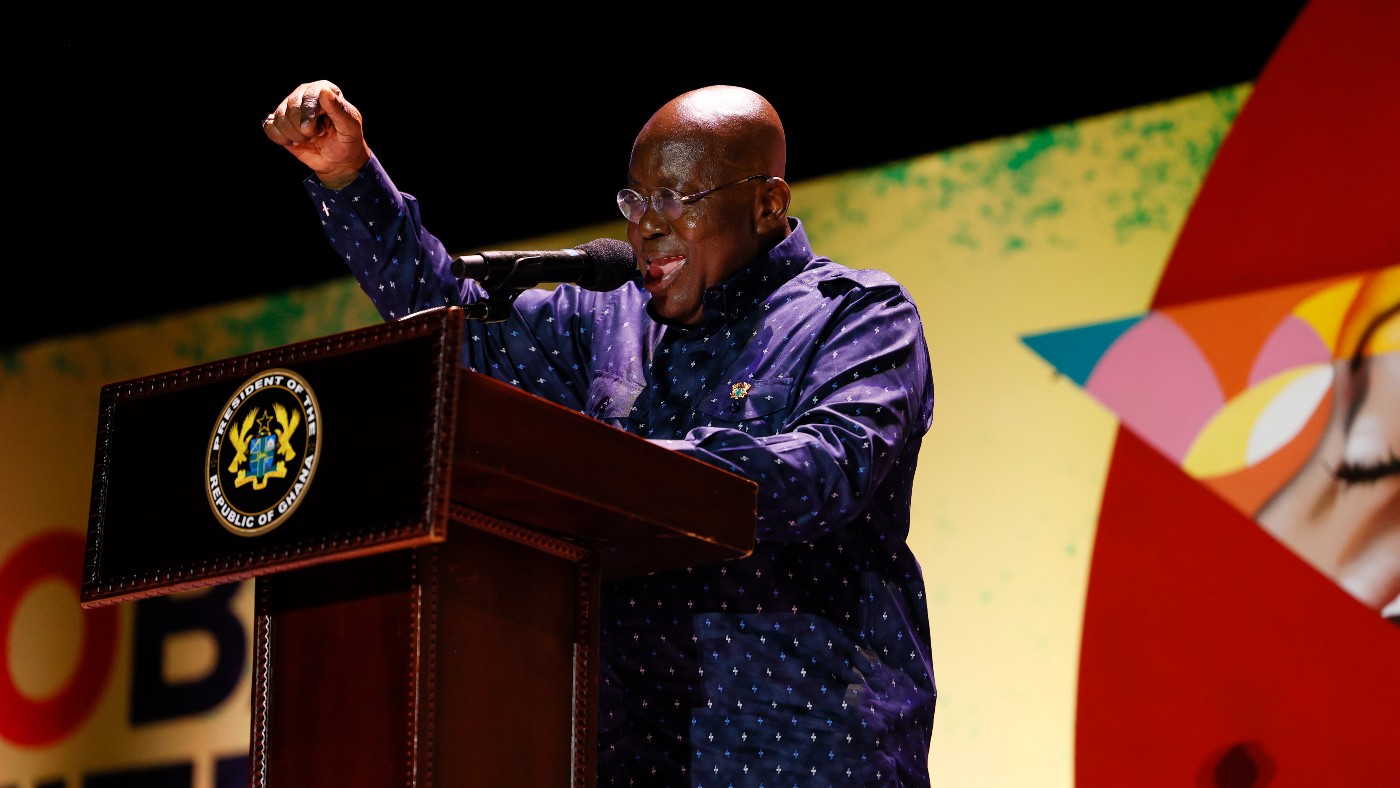Dashed dreams: the plight of China’s disillusioned youth
Mismatch between Generation Z’s dreams and the opportunities available is causing real unease in Beijing

A free daily email with the biggest news stories of the day – and the best features from TheWeek.com
You are now subscribed
Your newsletter sign-up was successful
One name, more than almost any other, has circulated on Chinese social media in recent months, said Laura He on CNN (New York): that name is Kong Yiji.
A highly educated fellow, Kong sunk into poverty because he couldn’t forsake the “haughty manner of a scholar”, and refused to use manual labour to change his situation. Not that he ever existed. Kong Yiji was the main character in a 1919 short story by the celebrated Chinese writer Lu Xun. A century later, however, his story has begun to resonate with China’s disillusioned youth, who find themselves facing a similar dilemma: pursue a white-collar career and risk unemployment, or settle for the kind of blue-collar job they’d hoped to avoid by getting a good education. And this mismatch between Generation Z’s dreams and the opportunities available is causing real unease in Beijing, which has gone so far as to ban the Kong Yiji hashtag.
Rise of the educated jobless
Beijing is right to worry, said Amanda Lee in the South China Morning Post (Hong Kong). The mismatch in expectations is doing real harm to China’s already sluggish economy. The jobless rate for 16- to 24-year-olds now exceeds 20%. In the cities, one in five are out of work. A huge number are college graduates. To make things worse, lots of small-and medium-sized businesses that usually hire graduates were destroyed by China’s harsh Covid lockdowns, said Cindy Yu in Foreign Policy (Washington). Yet demand for such positions keeps rising as more and more people go to university: a record 12 million will graduate in June. To delay their entry into the jobs market, many are now turning to postgraduate degrees.
The Week
Escape your echo chamber. Get the facts behind the news, plus analysis from multiple perspectives.

Sign up for The Week's Free Newsletters
From our morning news briefing to a weekly Good News Newsletter, get the best of The Week delivered directly to your inbox.
From our morning news briefing to a weekly Good News Newsletter, get the best of The Week delivered directly to your inbox.
Meanwhile, China’s manufacturing sector is bemoaning a serious shortage of skilled labour, with some 30 million vacancies set to go unfilled by 2025. President Xi’s plan to combat this crisis is to send China’s brightest young minds to the countryside, said Katrin Büchenbacher in Neue Zürcher Zeitung (Zurich). Just as Mao Zedong once did, he is urging young urbanites to take on menial jobs to revitalise the Chinese economy in rural areas, where poverty is still widespread. And provincial governments such as Guangdong’s, which last month pledged to help 300,000 graduates and young entrepreneurs find work in villages, have responded to his call.
But it’s a strategy that could prove socially explosive. China’s urban youth have become accustomed to a degree of personal freedom in recent decades; they won’t take kindly to being “banished” from the cities that the new generation of middle-class Chinese overwhelmingly call home.
A free daily email with the biggest news stories of the day – and the best features from TheWeek.com
-
 Political cartoons for February 16
Political cartoons for February 16Cartoons Monday’s political cartoons include President's Day, a valentine from the Epstein files, and more
-
 Regent Hong Kong: a tranquil haven with a prime waterfront spot
Regent Hong Kong: a tranquil haven with a prime waterfront spotThe Week Recommends The trendy hotel recently underwent an extensive two-year revamp
-
 The problem with diagnosing profound autism
The problem with diagnosing profound autismThe Explainer Experts are reconsidering the idea of autism as a spectrum, which could impact diagnoses and policy making for the condition
-
 The spiralling global rice crisis
The spiralling global rice crisisfeature India’s decision to ban exports is starting to have a domino effect around the world
-
 Netanyahu’s reforms: an existential threat to Israel?
Netanyahu’s reforms: an existential threat to Israel?feature The nation is divided over controversial move depriving Israel’s supreme court of the right to override government decisions
-
 A country still in crisis: Lebanon three years on from Beirut blast
A country still in crisis: Lebanon three years on from Beirut blastfeature Political, economic and criminal dramas are causing a damaging stalemate in the Middle East nation
-
 Ghana abolishes the death penalty
Ghana abolishes the death penaltyfeature It joins a growing list of African countries which are turning away from capital punishment
-
 EU-Tunisia agreement: a ‘dangerous’ deal to curb migration?
EU-Tunisia agreement: a ‘dangerous’ deal to curb migration?feature Brussels has pledged to give €100m to Tunisia to crack down on people smuggling and strengthen its borders
-
 The sinister side to India’s fantasy gaming craze
The sinister side to India’s fantasy gaming crazefeature Fantasy gaming is booming in India, despite the country's ban on gambling
-
 China’s ‘sluggish’ economy: squeezing the middle classes
China’s ‘sluggish’ economy: squeezing the middle classesfeature Reports of the death of the Chinese economy may be greatly exaggerated say analysts
-
 Non-aligned no longer: Sweden embraces Nato
Non-aligned no longer: Sweden embraces Natofeature While Swedes believe it will make them safer Turkey’s grip over the alliance worries some